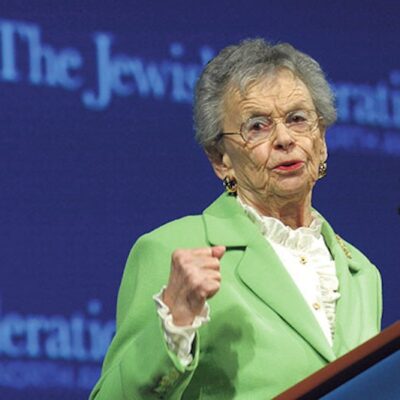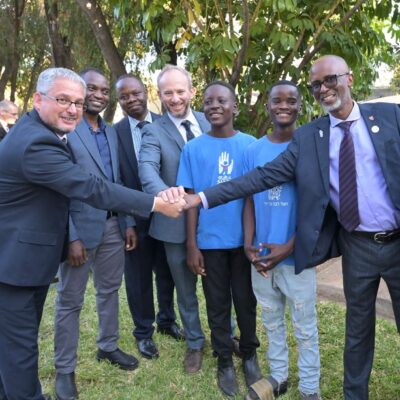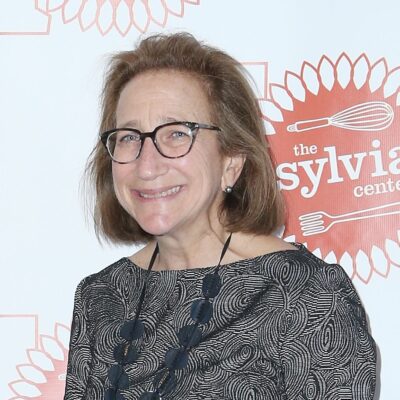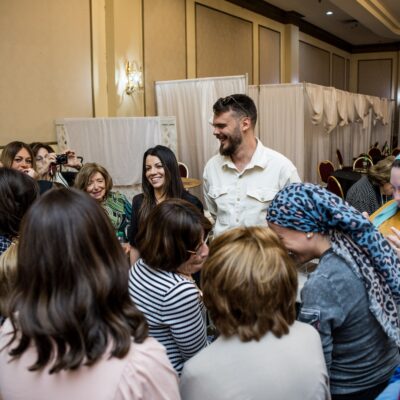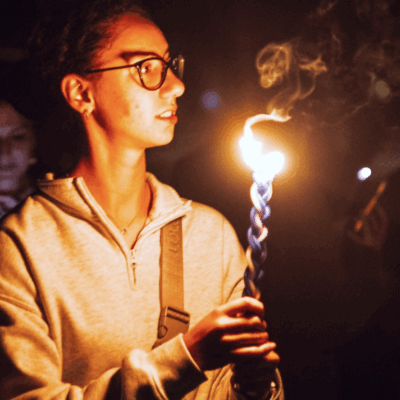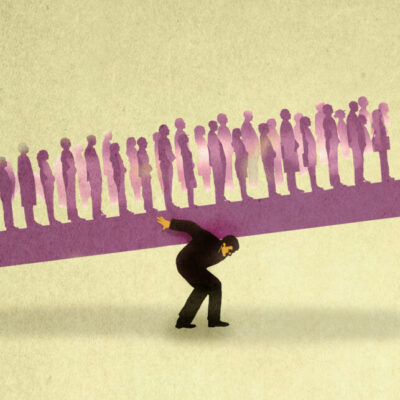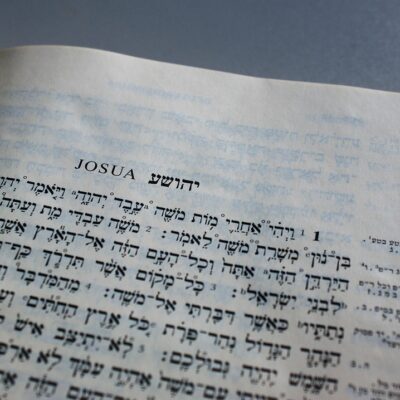Survey says
New poll finds Jewish educators around the world facing similar challenges post-Oct. 7; safety concerns prevail
In questionnaire, 1,500 teachers, clergy and engagement professionals say students feel unsafe, confused and isolated, but also curious about Israel and Judaism

Getty Images
Jewish educators from around the world say students and parents feel unsafe, worried, betrayed, confused and angry, but are also developing deeper connections to their Jewish communities and increasingly curious about Israel and Zionism in the wake of the Oct. 7 terror attacks in Israel and rising global antisemitism, according to a new poll by M2 and The Jewish Education Project.
Over 1,500 Jewish teachers, clergy and engagement professionals have completed the survey, which the participating organizations began distributing last month and which is still ongoing. (The poll is co-sponsored by a number of other Jewish organizations.) The respondents came from across the globe — the United States, the United Kingdom, Israel, South Africa, Australia, Brazil, among others — and from a variety of backgrounds and denominations. Some worked at private Jewish day schools, others in museums, synagogues and nonprofits. The survey was conducted in English, French and Spanish.
Clare Goldwater, chief strategy officer at M2, told eJewishPhilanthropy that the findings will be useful in developing educational policy and practice for the coming months and years.
The survey includes some near-universal findings: 99% of respondents said that “we are in a critical historical moment for the Jewish People” (74% very strongly agreed with that statement; 19% strongly agreed; and 6% just agreed); and 93% of the educators agreed that they play “an important role” in helping their students grapple with this moment. Most of the respondents said they feel up to the challenge to at least some degree.
“The main finding so far is that across the field, people seem to be dealing with the same things, and shared experiences among Jewish educators. This moment is something they all find significant – no matter what setting they work in,” Oshrat Slama Grozman, M2‘s director of marketing and communications, told eJP.
The five main “dynamics” of concern to the educators were “facts-narratives”; “safety-fear”; “hope-despair”; “solidarity-fragmentation”; and “loneliness-belonging.” The least relevant were “doubt-conviction”; “exposed-shelter”; and “privilege-burden.”
In the open-ended sections of the survey, the educators were asked to describe how these issues come up in their work, and the respondents painted a picture full of worry, concern and disappointment, but with some potential silver linings.
In the coming weeks, M2 and The Jewish Education Project will conduct a full analysis of the data, which will be published in mid-January.
A cursory review of the responses, however, show a large number of responses dealing with physical safety concerns in light of rising antisemitism around the world.
“[My students], and their parents, are always worried and concerned about safety and security. Many have not [come] to events they previously would have for this reason,” one person wrote.
“We are afraid. It is scary to teach and work in a Jewish setting,” another wrote. “Our families are scared. Security is a daily topic and worry driven by [fear]. We are hopeful but also the despair is real. Seeing how the mood has shifted over the past few weeks and the ups and downs. Our children sense it all but don’t know.”
Some respondents highlighted the feeling of social isolation that people in their communities feel betrayed by more progressive friends and groups.
Many respondents said the war has made people evaluate or reevaluate their relationship with Israel and their understanding of its history, or lack thereof.
“Is [the current moment] more of an Israel experience or a Diaspora one —- it feels like Israel but why am I so emotionally drained and anxious in the Diaspora?” one person asked.
“Teens are trying to balance what they know and don’t know, what they feel and think, caring about Jews and Israelis, caring about Palestinians” another said. “There are also dynamics in terms of what is our job as Jewish educators to provide in this moment — facts, values, space to talk, feel.”
Many said they and their students are grappling with moral questions of the current moment, how to support and defend Israel, while also feeling compassion for Palestinian civilians being killed in the war.
Alongside the confusion and disappointment, some respondents said they see people growing closer to Judaism and their community.
“I just see folks showing up for services more, and seeing people who are not ‘religious’ expressing more connection,” one person said.
“[Students] are just confused and hurt as to why there are bad people in this world who wish death and destruction on other people,” said another. “They also feel immense pride in their Judaism and for the Land and State of Israel.”


